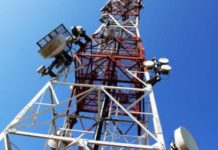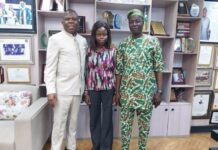… Wins at Presidential Tribunal
By Aaron Ukodie
The presidential petition tribunal (PEPT) has struck out the petition filed by the peoples’ Democratic Party (PDP), Atiku Abubakar challenging the election of Mohammadu Buhari as president in the presidential election that took place on February 23, 2019 .
The tribunal chairman Mohammed Garba, who gave the lead judgment made several pronouncements on the case which overwhelmingly gave the All Progressive Congress (APC) candidate victory on many points.
The PEPT main points in its ruling are that:
- Buhari was eminently qualified to contest the elections.
- Electronic transmission of results is not supported by law
- Atiku witness on the existence of INEC server cannot be relied on and that the witness did not show he is an expert whose witness should be relied on.
- The case of electoral misconduct could not be proved by Atiku
According to Justice Garba, chairman of the tribunal who gave the lead judgment, Buhari was qualified to contest the presidential election, even though he did not submit qualification papers to prove his academic qualification because the law does not require it.
He said Buhari is not only qualified, he is eminently qualified.
“If the 2nd Respondent has not presented his secondary school Certificate to the Army during his commission, where did the Army get its academic qualifications quoted in form 199 by the Army?
“There is no doubt that the 2nd respondent is not only qualified but also eminently to contest for the said office (of the President of the Federal Republic of Nigeria).
“Whether the name Mohammed is spelt with ‘U’ or with ‘O’, in as much as the name ‘Buhari’ belongs indisputably to the 2nd respondent the certificate belongs to him,” Garba stated.
The panel had earlier dismissed a motion dated April 25, which the Independent National Electoral Commission, INEC, filed to challenge the competence of the petition that was lodged by the PDP, and its candidate, Atiku Abubakar.
INEC had relied on Paragraphs 4(5) and 53(5) of the First Schedule to the Electoral Act and urged the tribunal to strike out the list of witnesses and evidence that were attached to Atiku’s petition, insisting that it was not validly signed by a legal practitioner.
It had also held that the Atiku lead counsel, Livi Uzoukwu was competent to appear for his client arguing that INEC contention that the name on the Nigerian Bar Association, NBA, seal that Atiku’s lawyer, Dr Livy Uzoukwu, SAN, affixed on the petition dated March 18, deferred with the name he filled in the Supreme Court roll for lawyers.
The tribunal said it was satisfied that Atiku’s lawyer was validly called to the Nigerian Bar. It held that INEC failed to controvert affidavit evidence by Uzoukwu to the effect that he was called to the Bar in 1982, served as the Attorney General of Imo State between 1994 and 1996, and was conferred the SAN rank in 1999.
It also throws out INEC’s objection to Atiku’s petition arguing that the tribunal lacked the jurisdiction to entertain the aspect of the petition alleging that President Buhari supplied false information regarding his educational qualifications.
It held that contrary to INEC’s argument, such issue could be effectively ventilated before an election tribunal, stressing that it does not fall within pre-election matters listed under section 285(14) of the 1999 constitution.
The tribunal held that since it could be litigated before it, it was therefore not caught by the statute of limitation that made it mandatory that such issue could only be challenged within 14 days after President Buhari tendered his Form CF001 to INEC. Nevertheless, the tribunal agreed with INEC and struck out several paragraphs of the petition it said contained allegations against agencies and individuals that were not joined as parties in the matter.
It held that the paragraphs were liable to be struck out since it contained serious allegations of crime, corrupt practices, violence, and unlawful interference in the electoral process, made against those that could not defend themselves. “The court cannot make pronouncements against such persons in violation of their right to a fair hearing under section 36 of the 1999 constitution. “The motion, therefore, succeeds only in part. Prayer 7 and 8 are accordingly granted”, the tribunal held.












